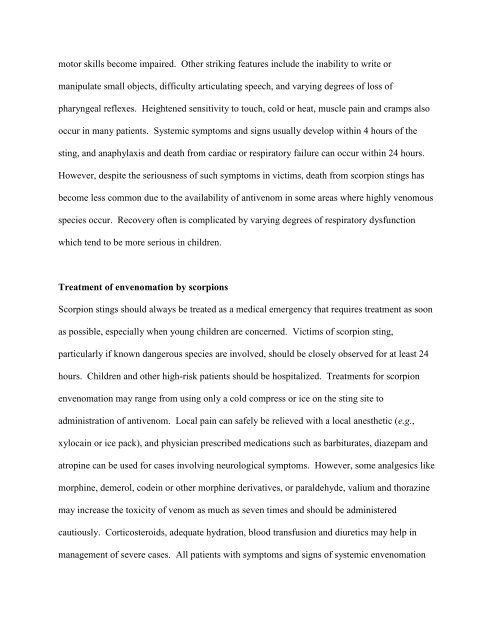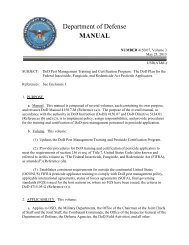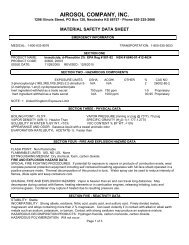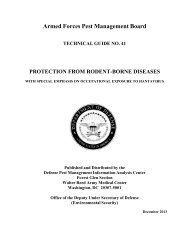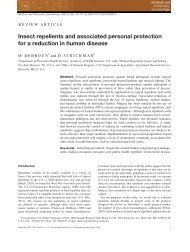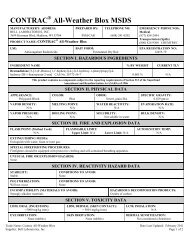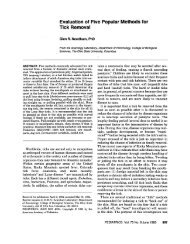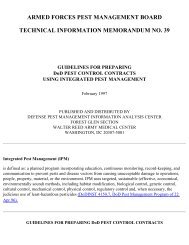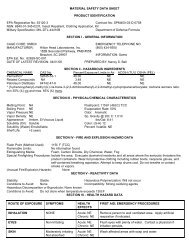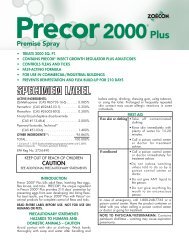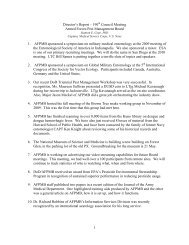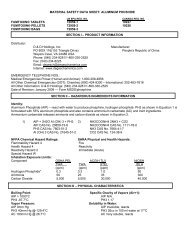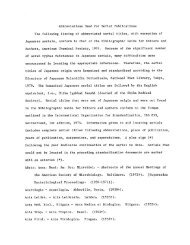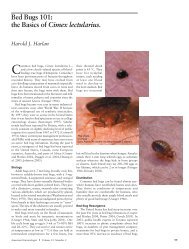Field Guide to Venomous and Medically Important Invertebrates ...
Field Guide to Venomous and Medically Important Invertebrates ...
Field Guide to Venomous and Medically Important Invertebrates ...
You also want an ePaper? Increase the reach of your titles
YUMPU automatically turns print PDFs into web optimized ePapers that Google loves.
mo<strong>to</strong>r skills become impaired. Other striking features include the inability <strong>to</strong> write or<br />
manipulate small objects, difficulty articulating speech, <strong>and</strong> varying degrees of loss of<br />
pharyngeal reflexes. Heightened sensitivity <strong>to</strong> <strong>to</strong>uch, cold or heat, muscle pain <strong>and</strong> cramps also<br />
occur in many patients. Systemic symp<strong>to</strong>ms <strong>and</strong> signs usually develop within 4 hours of the<br />
sting, <strong>and</strong> anaphylaxis <strong>and</strong> death from cardiac or respira<strong>to</strong>ry failure can occur within 24 hours.<br />
However, despite the seriousness of such symp<strong>to</strong>ms in victims, death from scorpion stings has<br />
become less common due <strong>to</strong> the availability of antivenom in some areas where highly venomous<br />
species occur. Recovery often is complicated by varying degrees of respira<strong>to</strong>ry dysfunction<br />
which tend <strong>to</strong> be more serious in children.<br />
Treatment of envenomation by scorpions<br />
Scorpion stings should always be treated as a medical emergency that requires treatment as soon<br />
as possible, especially when young children are concerned. Victims of scorpion sting,<br />
particularly if known dangerous species are involved, should be closely observed for at least 24<br />
hours. Children <strong>and</strong> other high-risk patients should be hospitalized. Treatments for scorpion<br />
envenomation may range from using only a cold compress or ice on the sting site <strong>to</strong><br />
administration of antivenom. Local pain can safely be relieved with a local anesthetic (e.g.,<br />
xylocain or ice pack), <strong>and</strong> physician prescribed medications such as barbiturates, diazepam <strong>and</strong><br />
atropine can be used for cases involving neurological symp<strong>to</strong>ms. However, some analgesics like<br />
morphine, demerol, codein or other morphine derivatives, or paraldehyde, valium <strong>and</strong> thorazine<br />
may increase the <strong>to</strong>xicity of venom as much as seven times <strong>and</strong> should be administered<br />
cautiously. Corticosteroids, adequate hydration, blood transfusion <strong>and</strong> diuretics may help in<br />
management of severe cases. All patients with symp<strong>to</strong>ms <strong>and</strong> signs of systemic envenomation


